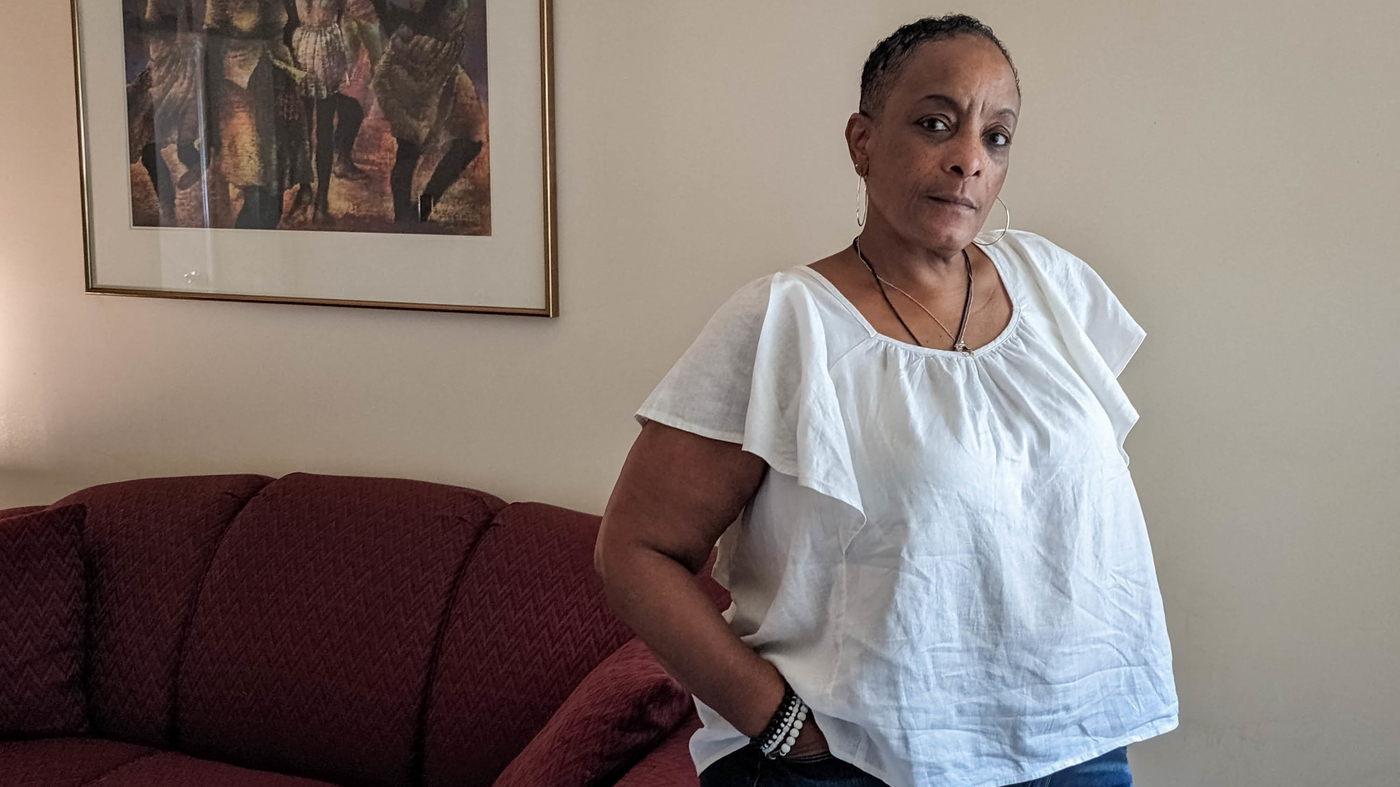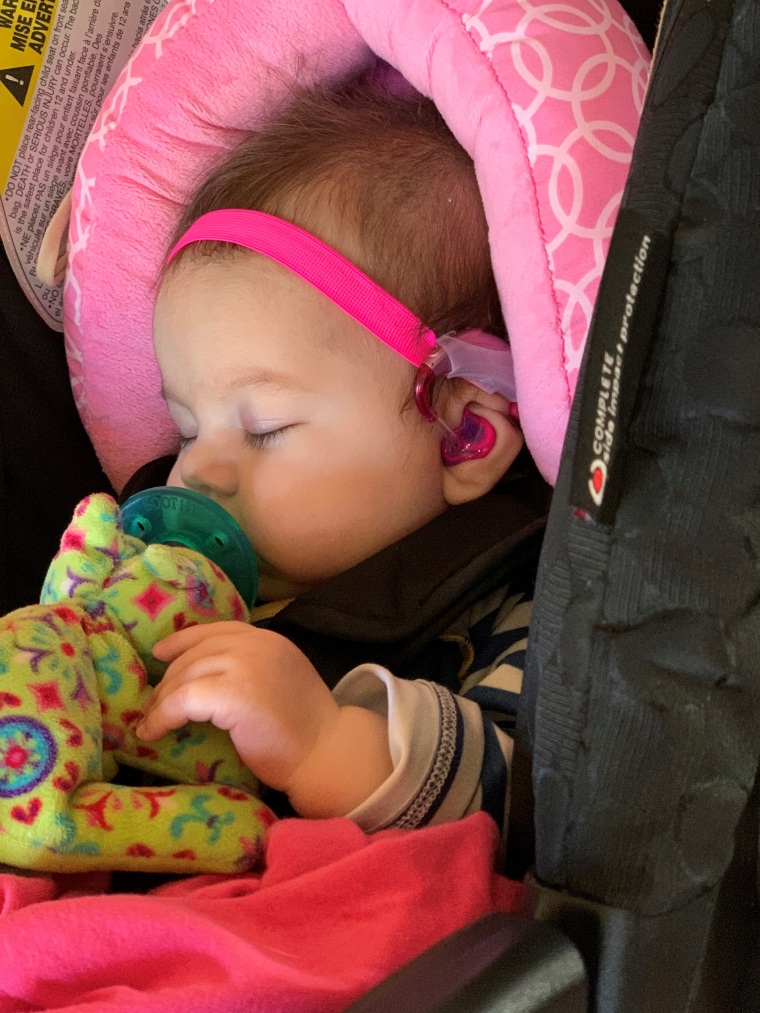Table of Contents

Penelope Wingard of Charlotte, N.C., has survived breast most cancers, a mind aneurysm and surgical operation on each eyes. For the previous 8 years, she’s additionally been scuffling with tens of hundreds of bucks in scientific debt.
Aneri Pattani/ KHN
cover caption
toggle caption
Aneri Pattani/ KHN

Penelope Wingard of Charlotte, N.C., has survived breast most cancers, a mind aneurysm and surgical operation on each eyes. For the previous 8 years, she’s additionally been scuffling with tens of hundreds of bucks in scientific debt.
Aneri Pattani/ KHN
After a yr of chemotherapy and radiation, docs informed Penelope Wingard in 2014 that her breast most cancers used to be in remission. She’d been praying for this just right information. However it additionally intended she now not certified for a program in North Carolina that gives brief Medicaid protection to sufferers present process energetic breast most cancers remedy.
Wingard was uninsured. She’d survived the scientific toll, however the monetary toll used to be ongoing.
Expenses for follow-up appointments, blood assessments and scans briefly piled up. Quickly, her oncologist mentioned he would not see her till she paid down the debt.
“My hair hadn’t even grown again from chemo,” Wingard says, “and I could not see my oncologist.”
Clinical debt has sunk her credit score ranking so low that she has struggled to qualify for loans, and making use of for jobs and flats has transform a harrowing enjoy.
“It is like you are being punished for being in poor health,” Wingard says.
Previous this yr, when 3 nationwide credit score businesses introduced new insurance policies to care for scientific debt, client advocates celebrated, pondering it might supply reduction for sufferers like Wingard. However it seems the adjustments are not sufficient to assist her or many different Black and low-income sufferers, who’re ceaselessly those hit toughest via scientific debt.
“They are simply putting off the small stuff”
Underneath the brand new insurance policies, Equifax, Experian and TransUnion will take away from credit score reviews any paid money owed or particular person expenses that have been lower than $500 and had long gone to collections, although unpaid. This does not wipe out what folks owe, however the thought is to take away the black mark of collections from their credit score so they are able to extra simply achieve milestones like qualifying for a automobile or house mortgage.
The adjustments, which pass into complete impact in 2023, are anticipated to profit an estimated 16 million American citizens. However a federal file launched this summer season suggests the ones might not be the individuals who want it maximum.
“Even supposing the credit score reporting firms have trumpeted this as a large alternate, the truth is they are simply putting off the small stuff,” says Ryan Sandler, a co-author of the file and senior economist with the Client Monetary Coverage Bureau. “They are now not possibly doing as just right of a factor as their press releases would love you to consider.”
Clinical debt is best possible in Southern states that did not extend Medicaid
Other people harassed maximum via scientific debt have a tendency to be Black or Hispanic, low-income, and within the South. A national KFF ballot discovered 56% of Black adults and 50% of Hispanic adults say they have got present debt because of scientific or dental expenses, in comparison with 37% of non-Hispanic white adults. And a find out about revealed in 2021 discovered scientific debt used to be best possible inside of low-income communities and in Southern states that had now not expanded Medicaid.
However, Sandler says, “the inhabitants this is going to have all their collections got rid of is a bit more prone to reside in majority-white neighborhoods and high-income neighborhoods.”
Collections underneath $500 ceaselessly end result from an unpaid copay or coinsurance, Sandler says, and folks with insurance coverage are much more likely to be richer and white.
Somebody like Wingard — a Black lady dwelling in North Carolina — is much less prone to get pleasure from the credit score firms’ new insurance policies.
After Wingard’s oncologist reduce her off, it took virtually six months to search out every other physician who would see her whilst letting expenses pass unpaid.
North Carolina has now not expanded Medicaid, so in spite of her low revenue, Wingard, who’s 58 and does now not have babies, does not qualify for the general public insurance coverage program in her state.
She estimates her overall scientific debt as of late is over $50,000. It isn’t only for most cancers care, but in addition expenses for unrelated fitness issues that advanced within the following years.
She has labored as an after-school instructor and tutor, a COVID-19 touch tracer and a driving force for a ride-hailing carrier, however none of the ones jobs has include medical health insurance advantages. Wingard says she attempted to shop for personal insurance coverage at the market a number of years in the past, however her per month top class would were greater than $200, which she can not have enough money.
That left her at the hook for invoice after invoice after invoice. Her credit score file displays 5 pages of notifications from assortment businesses representing physician’s places of work, hospitals and labs.
Just about 20% with scientific debt worry they’re going to by no means pay it off
Wingard is resourceful. She has hunted down clinics that paintings on sliding-scale charges, pharmacy methods that scale back copays and nonprofits that assist duvet fitness care prices. However it has now not been sufficient to dig her out of debt.
In February, Wingard wanted a specialised mammogram to test for most cancers recurrence. Forward of the appointment, she contacted a neighborhood nonprofit that agreed to hide the associated fee. However a couple of weeks after the process, Wingard gained a invoice for almost $1,900. There used to be some miscommunication between the nonprofit and the health facility, Wingard says. Whilst she attempted to unravel the problem, the invoice went to collections. It is greater than $500, so it would possibly not be got rid of even if the brand new credit score company insurance policies take complete impact subsequent yr.
“You combat so arduous and also you undergo such a lot,” Wingard says. “Nonetheless, every so often you do not see any more or less reduction.”
Just about 20% of American citizens with scientific debt do not suppose they’re going to ever pay all of it off, in step with the KFF ballot. Wingard has resigned herself to dwelling with the ramifications.
“It makes you are feeling nugatory, like you’ll’t do anything else”
Her refrigerator and range have each been damaged for greater than a yr. She can not qualify for a mortgage to interchange them, so as a substitute of creating baked rooster from her favourite circle of relatives recipe, she ceaselessly settles for a can of soup or fast-food rooster wings as a substitute.
In emergencies — reminiscent of when she had to restore a damaged enamel this autumn — Wingard borrows from circle of relatives. However it isn’t simple to invite for cash, she says. “It makes you are feeling nugatory, like you’ll’t do anything else.”
A find out about revealed just lately discovered that scientific debt leaves many of us not able to pay for fundamental utilities, will increase their housing and meals lack of confidence, and will “give a contribution to a downward spiral of ill-health and monetary precarity.”
How low credit reviews harm task possibilities
For Wingard, it has harm her talent to get a task. She says two employers informed her that a bad credit score displays up as a pink flag on background exams and has led her to be became down for positions.
Employers every so often use credit score reviews as a “proxy on personality,” defined Mark Rukavina, a program director with the nonprofit fitness advocacy staff Neighborhood Catalyst. If two applicants are similarly certified however one has adverse credit or a number of unpaid money owed, employers may believe that individual much less accountable, he says — in spite of analysis appearing scientific debt isn’t a correct predictor of any person’s chance to pay expenses.
Even supposing the brand new insurance policies from credit score firms are not going to make stronger Wingard’s state of affairs, client advocates say there are indicators that society is beginning to take into accounts scientific debt another way.
The Biden management has steered federal lenders to now not believe scientific debt when comparing mortgage programs and has requested the Client Monetary Coverage Bureau to analyze whether or not scientific debt must ever seem on credit score reviews.
A federal legislation banning positive sorts of wonder scientific expenses went into impact this yr, and a few states have reinforced protections in opposition to scientific debt via increasing Medicaid or conserving nonprofit hospitals in control of offering monetary help to low-income sufferers.
In August, VantageScore, an organization that calculates credit score ratings, mentioned it’ll prevent the usage of scientific collections in its method.
Wingard is able for swifter and more potent alternate. And she or he has an concept for methods to get there: a march on Washington to call for reduction from scientific debt and common insurance coverage to scale back long term expenses.
“For one million folks to assemble up there and say we’d like higher fitness care, I believe that’d be history-making,” she says. “Possibly then they’re going to acknowledge we’d like assist.”
KHN (Kaiser Well being Information) is an editorially unbiased, nationwide program of KFF (Kaiser Circle of relatives Basis).











